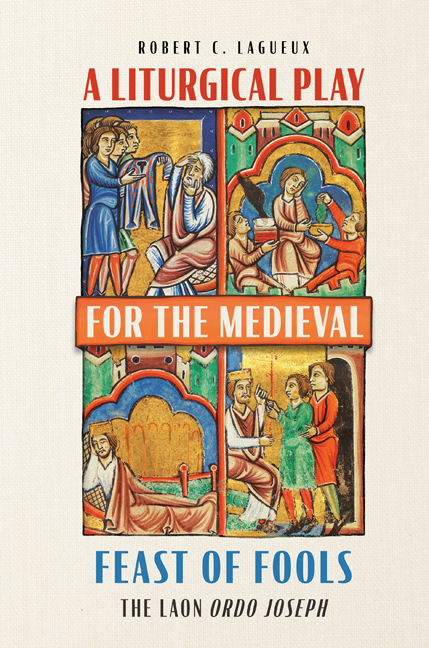4 - Anti-Jewish Sentiment and the Passion
Published online by Cambridge University Press: 17 December 2023
Summary
JOSEPH AS CHRIST FIGURE
The idea that Joseph was a type of Christ was an allegory so obvious to medieval exegetes that the Glossa ordinaria provides for the word “Joseph” in the first verse of the Joseph story (Gen 37:2) only the succinct interlinear gloss “Christus.” The two biblical Josephs – one an Old Testament patriarch, the other the earthly father of Christ in the New Testament – and the stories associated with them bore so many similarities that the two figures were linked in multifarious ways. The Old Testament Joseph prefigured both his New Testament namesake and Christ himself: like the New Testament Joseph, Joseph the patriarch was a man of divine dreams and went down to Egypt; like Christ, he was betrayed by Judah/Judas, one of twelve (sons of Jacob or apostles).
The Joseph story as a whole was thus intimately linked with both the birth and the death of Christ, though it foreshadowed most strongly the betrayal and Passion. Indeed, in addition to providing a model figure and a site for Feast of Fools reversal, the performance of the Ordo Joseph on Epiphany tightens an already dense web of relationships between the Christmas and paschal seasons. Drawing not only on medieval exegetes’ allegorical under¬standing of Joseph but, even more provocatively, the performance of the Ordo Stellae from Holy Innocents, the Ordo Joseph bridges the anti-Jewish rhetoric of the two seasons and compresses a wealth of allegorical and typo¬logical understanding into a few densely packed characters and episodes. The performance of the Ordo Joseph becomes a kind of singularity, a fusion of seasons, a timeless moment that is at once all time.
Some of the typological connections made between Joseph and Christ focused on historical similarities: Augustine's City of God, for example, alludes to Christ's Passion and Resurrection by noting the age of Joseph: “But in his thirtieth year Joseph was lifted up to a lofty position from this humiliation which he had endured, and he took his place before Pharaoh.” Most commentators concentrated on symbolic, allegorical relationships, however.
- Type
- Chapter
- Information
- A Liturgical Play for the Medieval Feast of FoolsThe Laon <i> Ordo Joseph</i>, pp. 93 - 110Publisher: Boydell & BrewerPrint publication year: 2023



